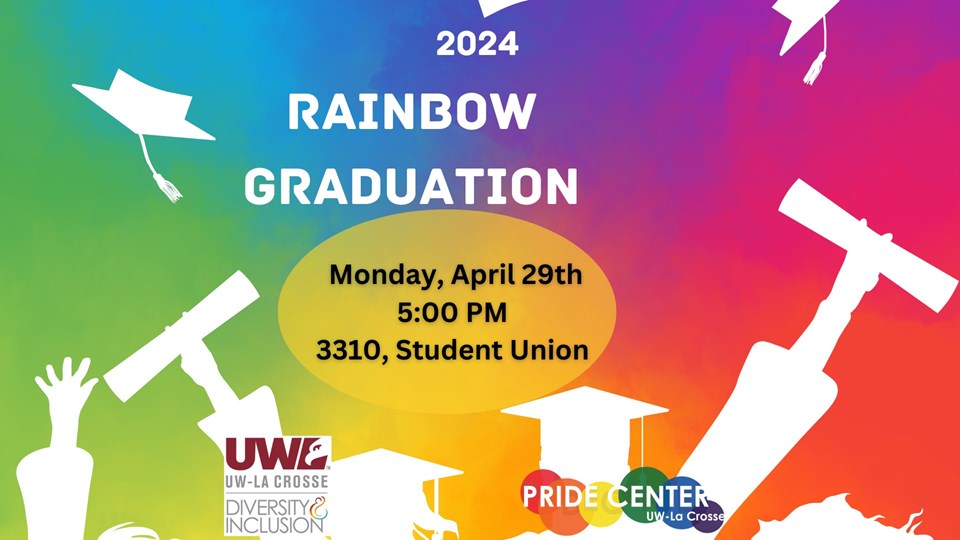Academic retention overview
A page within Multicultural Student Services
What is Retention?
Student persistence and retention are both terms commonly used in higher education, that are often used interchangeably to describe the active status of a student continually moving from semester to semester until graduation.
Here in the Office of Multicultural Student Services, we place a high priority on helping students persist to graduation and completion of their education, through various retention programs.
There are numerous ways we engage our students to maintain focus on their commitment to college:
The Early Academic Initiative
The first year of college sets the foundation for success, and is a critical factor in the retention of our students. Our office promotes a position of active and informative communication through our Prism and Strive and Thrive Newsletters, as well as emails containing imperative information such as academic deadlines, employment opportunities, scholarships, and special events.
Our staff also connects with as many students as possible, to establish solid relationships, and aide them in both academic and personal advisement, as well as financial guidance throughout their time at UW-La Crosse. Students receive periodic information regarding academic deadlines, scholarship and employment opportunities, and special programs sponsored by OMSS and collaborating offices.
- Many students also work with our staff members on a regular basis to receive academic, financial, and personal advising.
- Staff members contact their students and share the services of the office and other campus resources.
- The rapport built during this first year has been for most a positive experience that develops over the student’s years at UWL.
UW-La Crosse EAGLE Alert
The UWL Early Alert program was designed to boost student retention and graduation rates through faculty-student communication about academic progress. Any student on campus can receive feedback; it could be positive or negative, and even serve as a means for a way to have an instructor recommend a student for leadership positions or scholarships.
For the purpose of our office, we focus on any student that has self-identified as multicultural, is a new first-year student, a new transfer student, or currently receiving a Grade Point Average (GPA) below a 2.5. The reasons we focus on anyone with lower than a 2.5 GPA is that most UW-La Crosse majors require a 2.5 or higher to fulfill their graduation requirements. When a student received an Alert from a professor, good or bad, our office will reach out to a student to congratulate them on a job well done, or invite them in for a meeting to create an academic success plan designed to best fit their needs.
The Eagle Alert system has the potential to be an extremely effective system if everyone involved is committed to its success. Students who are struggling, but are too intimidated to speak to their professors about their performance, will be able to receive some online feedback about where they are specifically in need of assistance, and hopefully reach out back to the professor to start an informed conversation to better understand the coursework. However, if a student is still uncomfortable speaking to a professor, they will have the opportunity to come in and speak with a member of the Multicultural Student Services staff, or they could even go to their faculty advisor for additional advice. Overall, the main goal of this program is to ensure a student is on track to graduate and has been given the resources and established the relationships necessary to succeed.
Early alerts can help a student raise a grade before the last day to drop, as well as allow them to make informed decisions on if they should or should not drop a class. It can open doors to better relationships between students and faculty and is one way we can check in with our students about their 4-year graduation plan.
History Behind Eagle Alert and Early Warning Interventions
The Office of Multicultural Student Services has had a process going on in the office for over 20 years called GPR, or Grade Progress Report. If a student self-identified as multicultural (Black, Hispanic, Asian, Native American, South East Asian, etc…), was a new freshman, new transfer student, or getting below a 2.5 grade point average (most majors require a 2.5 of higher to fulfill major requirements for graduation) - they would have a letter sent to their professors asking for feedback about the student's performance. Once it was received, it was then shared with the student via an in-person meeting or a phone call.
In the meetings, someone from multicultural student services would address any issues the student was having via an advising meeting, encouraging the student to meet with their professors and expose them to services they might not know about (peer tutoring in our office, Murphy learning center, public speaking center, student support services, etc…). Other times there might be a financial barrier as to why a student is struggling, and we could recommend they see someone in financial aid or the financial retention specialist in our office for assistance.
When the quantity of information became too great to handle via the survey method, OMSS reached out to Institutional Technology to develop an online system that streamlines faculty's ability to offer feedback to students. Once it was decided this was something that could be done by IT, the decision was made by senior staff to make it a campus wide initiative where all students could get feedback from a faculty member via email. As a result, the Eagle Alert program was then added to the Higher Learning Committee's review of our accreditation, under what we call the Firm Footing Initiative (more information can be found on the home page: https://sites.google.com/a/uwlax.edu/firmfootinguwl/
Questions about Eagle Alert can be directed to our office, or to Andy Roberts at aroberts@uwlax.edu
Financial retention
Financing a college degree can be challenging and our office is here to assist our students and their families with any questions or concerns they might have. OMSS has a dedicated financial retention specialist that is well versed in the financial aspects of higher education. However, it is the responsibility of the entire office to aide students in their search for financial aid.
There are a few scholarships and grant programs available in our office, for information please contact Richard Sims, 608.785.8225.
Advanced Opportunity Program (AOP) grant for graduate students
Awards under this program are made to graduate students of African American, Hispanic, Native American or designated Southeast Asian heritage as well as to economically disadvantaged students. Students must complete an AOP application and show financial need as established through filing the Free Application for Federal Student Aid ( FAFSA).
Lawton Undergraduate Minority Retention Grants
The Lawton Undergraduate Minority Retention Grant is available to sophomores, juniors, and seniors (30 credits or more), who have a minimum cumulative 2.0 grade point average, are Wisconsin residents, and identify as African-American, Latino/a, American Indian, or a Southeast Asian American student of Vietnamese, Cambodian, Laotian, or Hmong heritage. Full-time students are eligible for grants up to $4,000, for up to four years or 8 semesters (preferably consecutive) based on financial need. Students must complete at least 24 credits during the academic year to continue to be qualified for the Lawton Undergraduate Minority Retention Grant.
For full consideration, the FAFSA should be filed by UWL's priority date of February 1 preceding the next fall term.
Additional scholarships and grants
- UW-La Crosse Foundation: http://www.foundation.uwlax.edu/sch.html
- UW-La Crosse Financial Aid: /finaid/
- Scholarship Resource Center: https://www.uwlax.edu/scholarships/
- American Indian Grants
- State Information: http://www.heab.state.wi.us/programs.html#ISAG
- Federal Information: https://www.bie.edu/document/bie-higher-education-grant-program-scholarship-information-packet
Outside resources
Peterson Education Center http://www.petersons.com/
Student Guide to Understanding Financial Aid, US Dept. of Education http://www2.ed.gov/students/landing.jhtml?src=gu
Federal Student Aid https://studentaid.gov/
Smart Guide to Financial Aid http://www.finaid.org/





